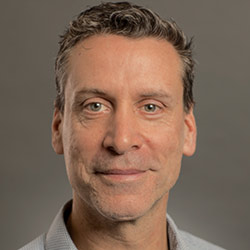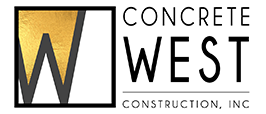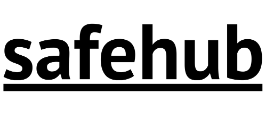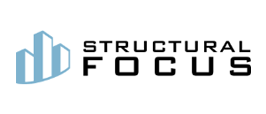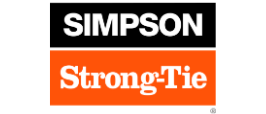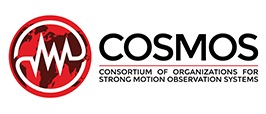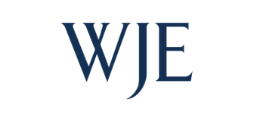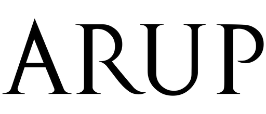TUESDAY, MARCH 23, 2021
March 23, 2021 10:00 - 11:00am PT
P1: EERI in 2021 and beyond: recent progress, future plans, and tribute to our 2021 honorees.
The 2021 EERI Annual meeting will kick off with the release of the Institute’s updated mission and vision statements developed and refined over the last 9 months by EERI leadership. In his inaugural presidential address, EERI President and Structural Engineer David Cocke, will reveal the Institute’s new foundational statements and introduce new strategic goals and priority initiatives that will begin in 2021. Learn how these new activities align with and expand upon ongoing institute priorities, and how members can engage with the Institute in the year ahead to advance this work. This address will be followed by EERI’s Annual Awards Ceremony. Get inspired by distinguished honorees (https://www.eeri.org/eeri-award-recipients/) as they reflect upon their careers and are recognized for their outstanding accomplishments. Attendees will leave this session motivated to actively participate in the Annual Meeting and other EERI initiatives in the year ahead.
Thank you to our session sponsor:

David Cocke
Structural Focus
EERI President

Farzad Naeim
Farzad Naeim Inc
George W. Housner Medal
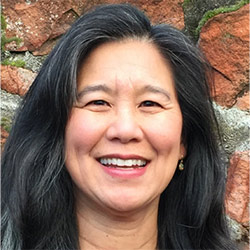
Yumei Wang
Portland State University
Alfred E. Alquist Special Recognition Medal

Jacobo Bielak
Carnegie Mellon University
Honorary Membership
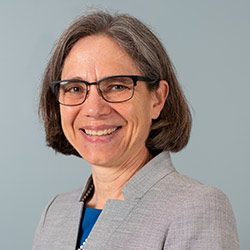
Sharon Wood
University Of Texas - Austin
Honorary Membership

Craig Davis
CA Davis Engineering
Distinguished Lecture Award

Anahid Behrouzi
Cal Poly San Luis Obispo
Younger Member Award

Christine Beyzaei
Exponent
Younger Member Award

Jonathan Buckalew
Nabih Youssef & Associates
Shah Family Innovation Prize

Gerardo Araya-Letelier et al.
Outstanding Paper Award for Earthquake Spectra

Sabine Loos
Stanford University
EERI Annual Graduate Student Paper Competition

Jeonghyun Lee
University of California, Los Angeles
EERI Annual Undergraduate Student Paper Competition
March 23, 2021 11:30am - 12:30pm PT
S1A: Cascadia Earthquake Disaster Risk Reduction
Despite evidence of past large M8-9 earthquakes in the Cascadia Subduction Zone (CSZ), e.g., native oral histories and paleoseismic records, there are no seismic recordings of ground shaking during these events. How the CSZ will rupture in an inevitable future megathrust earthquake and its impacts on the built environment and communities along the Cascadia corridor are largely unknown. As such, there are substantial opportunities for comparative and collaborative research of global significance that spans the natural, social, engineering, public health, and policy sciences. This session will serve as a platform to showcase ongoing research that advances both fundamental knowledge, as well as science and engineering technology, to support the resilience of communities across the Cascadia region. The session will address three subtopics: (1) Seismic Hazard, (2) Impacts on the Built Environment and (3) Community Resilience.
Thank you to our session sponsor:

Jenna Williams
Tipping Structural Engineers
Technical Session Organizer
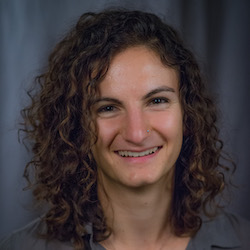
Valerie Sahakian
University of Washington
Moderator
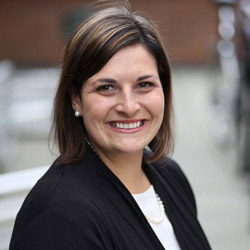
Nicole Errett
University of Washington
Moderator
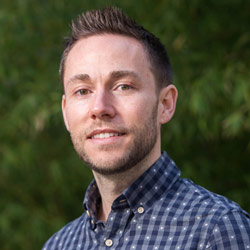
Carlos Molina Hutt
University of British Columbia
Moderator, Speaker
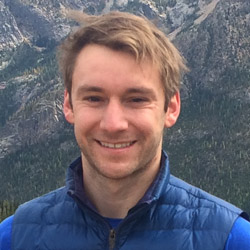
Alex Grant
USGS
“Seismic Hazard”
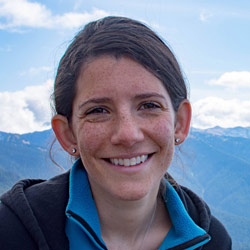
Erin Wirth
USGS
“Seismic Hazard”
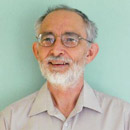
John Adams
NRCan
“Seismic Hazard”

Marc Eberhard
University of Washington
“Impacts on Built Environment”
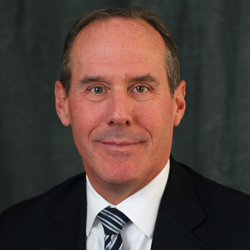
John Hooper
Magnusson Klemencic Associates
“Impacts on Built Environment”

Preetish Kakoty
University of British Columbia, Vancouver
“Impacts on Built Environment”
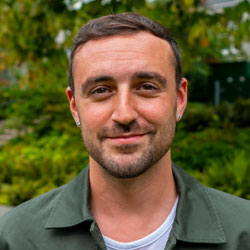
Micah Hilt
City of Vancouver
“Impacts on Built Environment”
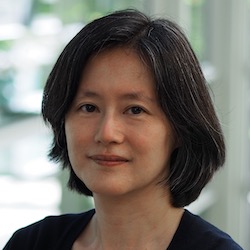
Stephanie Chang
University of British Columbia
“Community Resilience”
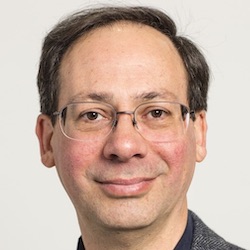
Dan Abramson
University of Washington
“Community Resilience”

Jenna Tilt
Oregon State University
“Community Resilience”
March 23, 2021 11:30am - 12:30pm PT
S1B: Earthquakes, Population Health, and Hospital Security
Earthquakes have important impacts on healthcare and hospital security in the post-event environment, and thus on population health. This session will be based around the impacts of earthquakes on healthcare or hospital security within the context of structural safety, non-structural safety, and emergency and disaster management. Members of the group will each present ten minute speed talks on a research topic relevant to earthquakes and healthcare or hospital security. The interactive Q&A session will begin with a ten-minute moderator facilitated trivia session based on the presentations.
Thank you to our session sponsor:

Cale Ash
Degenkolb Engineers
Technical Session Organizer

Amber Khan
University of Washington
Moderator
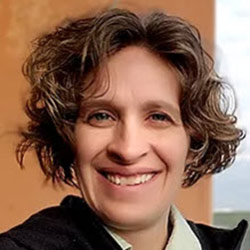
Janise Rodgers
GeoHazards International
"Pre-Event Assessments"
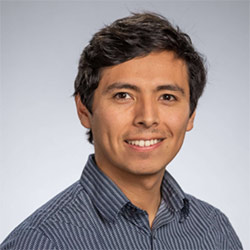
Luis A. Ceferino Rojas
New York University
"Effective Plans for Hospital System Response to Earthquake Emergencies"
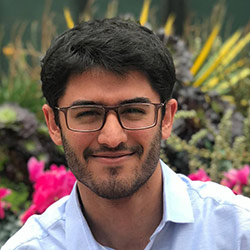
Karl Eid
University of Illinois - Urbana Champaign
"Modeling Post-Earthquake Casualty Arrival Rates at Hospitals"

Judith Mitrani-Reiser
National Institute of Standards and Technology
"Functional Recovery of Healthcare Facilities"
March 23, 2021 12:30 - 1:00pm PT
Q&A S1A: Interactive Q&A with the speakers of Cascadia Earthquake Disaster Risk Reduction
During this interactive session, attendees will have the opportunity to continue the technical session discussion in an informal setting. Those who attend will be able to ask speakers and moderators questions by joining breakout rooms that will hold small discussion groups on three subtopics: (1) Seismic Hazard, (2) Impacts on the Built Environment and (3) Community Resilience. The Q&A session will conclude in the main Zoom room to summarize the main discussion points reached in the subtopic breakout rooms.
March 23, 2021 12:30 - 1:00pm PT
Q&A S1B: Interactive Q&A with the speakers of Earthquakes, Population Health, and Hospital Security
During this interactive session, attendees will have the opportunity to continue the technical session discussion in an informal setting. Those who attend will be able to ask speakers and moderators questions in a live Zoom meeting.
March 23, 2021 12:30 - 1:00pm PT
i1C: Advocating for a Safer Future!
Have you ever wondered how earthquake engineering can translate into policy? Do you have an interest in becoming more engaged in your community for the benefit of earthquake preparedness for all? Are you left thinking…what is my first step and where can I contribute best? The Public Policy and Advocacy committee invites you to join our session to learn about how you can be the best citizen advocate for your region! We can help take the thinking to action and learn from our collective experience on how to make the impact we need for a safer, more resilient world. Welcome to all of our members from the PPA!

Maria Mohammed
Structural Focus
Lead Info Session Organizer
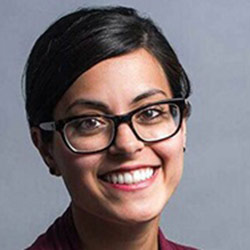
Zahraa Saiyed
Scyma Consulting LLC
Moderator

Anna Lang
Zylient
Moderator
March 23, 2021 12:30 - 1:00pm PT
i1D: Advocating for U.S. and Global School Earthquake Safety
School earthquake safety encompasses not only life safety issues for children and teachers, but also community resilience, recovery, and economic impacts. Recent earthquakes have demonstrated that although we have made real progress in improving seismic safety of schools, more work remains to be done. The newly formed SESI Safety, Advocacy, and Messaging Subcommittee works to bridge the communication gap between technical professionals, non-technical partners, and stakeholders interested in earthquake risk reduction for schools, while advocating for code improvements and implementation of practices that will enhance school safety and use after major earthquakes. This session will highlight current initiatives to improve school earthquake safety and present a brief case history demonstrating how EERI members have advocated for, and achieved, school safety improvements in their communities. We will then introduce 2021 goals for the subcommittee and collaboration opportunities with the EERI Public Policy Committee and GADRRRES (Global Alliance for Disaster Risk Reduction & Resilience in the Education Sector), followed by an open discussion.
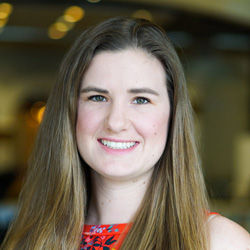
Shannon Spiers
Buro Happold
Lead Info Session Organizer

Christine Beyzaei
Exponent
Presenter
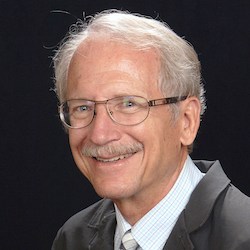
Rob Jackson
Amentum
Presenter

Eddie Vega
Holmes Structures
Presenter
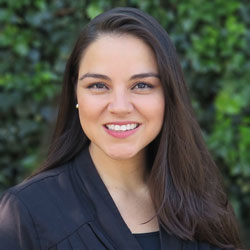
Veronica Cedillos
GeoHazards International
Presenter
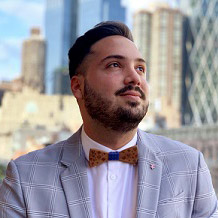
Guillermo Díaz Fañas
The World Bank
Presenter
March 23, 2021 1:30 - 2:30pm PT
S2A: Towards Improved Seismic Resilience in Mexico City
Mexico City is the fifth largest city in the world and located in a region of high seismic hazard. This session will focus on how the 2017 Puebla-Morelos Earthquake has influenced and changed how the country plans to design for and recovers from future earthquakes. The 2017 earthquake uncovered a significant gap between the expectations of the Mexican society for the seismic performance of the built environment, and the goals stated in the current building code. Additionally new approaches to considering earthquake-resistant design are being explored and accelerated, from performance-based evaluation, the use of displacement-based approaches, and resilience-based design. This session will share lessons learned and perspectives from colleagues in Mexico facing these challenges
Thank you to our session sponsors:

Adrian Rodriguez-Marek
Virginia Tech
Technical Session Organizer
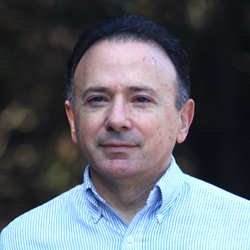
Eduardo Miranda
Stanford University
Moderator, Speaker
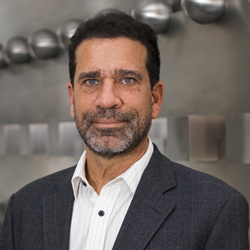
Eduardo Reinoso
UNAM, Mexico
Speaker
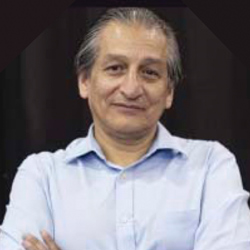
Amador Teran
UAM, Mexico
Speaker

Mario Ordaz
UNAM, Mexico
Speaker

Efraín Ovando-Shelley
UNAM, Mexico
Speaker
March 23, 2021 1:30 - 2:30pm PT
S2B: Shaping Research Into Policy to Improve Earthquake Safety in Schools
On a daily basis (in non-COVID times), school buildings house the future of the world. However, in many parts of the world, students in school buildings are vulnerable in the next earthquake. Methods for identifying and reducing these risks are well known to engineers. The difficulty is not in developing methods for mitigation of buildings or replacing vulnerable structures, but in assisting the decision makers realize the importance of these efforts and commit the necessary resources. This session will present three activities that aim to provide increased seismic safety at schools with strategies that can be implemented at scale: (1) the recently completed ATC-148 project funded by the World Bank developed a methodology for seismic risk based prioritization of school buildings in Kyrgyz Republic that allows the decision makers commit limited available funds to schools with the highest benefit in terms of lives saved; (2) the World Bank has published a Roadmap for Safer and Resilient Schools with a focus on design of intervention strategies and investment plans to make schools safer and resilient at scale; (3) a clearly recognized seismic risk reduction activity with high benefit-cost value is the reduction of nonstructural vulnerabilities in school buildings and a newly available training from FEMA is aimed specifically at school facilities staff, administrators, and teachers.
Thank you to our session sponsors:

Mervyn Kowalsky
North Carolina State University
Technical Session Organizer
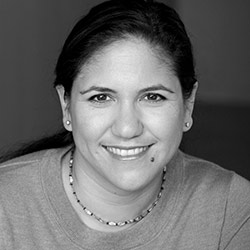
Ayse Hortacsu
Applied Technology Council
Moderator

Carina Fonseca
Global Program for Safer Schools, The World Bank
"A Global Roadmap for Safer and Resilient Schools"

David Mar
Mar Structural Design
"Do the Most Good for the Most Kids: A Simple Message for a Complex Issue"

Chiara McKenney
Applied Technology Council
"Empowering Schools to Mitigate Nonstructural Hazards"
March 23, 2021 2:30 - 3:00pm PT
Q&A S2A: Interactive Q&A with the speakers of the session titled, Towards Improved Seismic Resilience in Mexico City
During this interactive session, attendees will have the opportunity to continue the technical session discussion in an informal setting. Those who attend will be able to ask speakers and moderators questions in a live Zoom meeting.
March 23, 2021 2:30 - 3:00pm PT
Q&A S2B: Interactive Q&A on "Shaping Research Into Policy to Improve Earthquake Safety in Schools"
During this interactive session, attendees will have the opportunity to continue the technical session discussion in an informal setting. Those who attend will be able to ask speakers and moderators questions in a live Zoom meeting.
March 23, 2021 2:30 - 3:00pm PT
i2C: Join the EERI Younger Members Committee!
Are you a young professional, aspiring young faculty, or advanced graduate student in the earthquake community? Are you looking for opportunities to actively contribute to EERI’s goals and networking scenarios to grow in your career? The Younger Members Committee (YMC) is the right fit for you! The YMC provides opportunities to graduate students and early-career earthquake professionals/faculty members to actively engage EERI to promote professional development through webinars, workshops, and other activities designed especially for younger members. Also, it will give you a platform to become active in a variety of committees within EERI. It is an excellent place for you to meet with others alike to develop long-lasting networks and grow with your peers at the local, national, and international levels.

Maria Mohammed
Structural Focus
Lead Info Session Organizer

Maha Kenawy
University of Nevada – Reno
Moderator

Ezra Jampole
Exponent
Moderator
March 23, 2021 2:30 - 3:00pm PT
i2D: Convening Construction-Code Users of the USGS National Seismic Hazard Model
Brainstorm with the USGS and panelists representing construction codes for buildings (Charles Kircher), bridges (Thomas Murphy), and pipelines (Craig Davis). Numerous construction codes use the USGS National Seismic Hazard Model (NSHM) in establishing their seismic design loads, but the committees that develop them do so independently. Would an annual symposium of construction-code NSHM users facilitate direct exchange between the committees while the USGS engages numerous committees at once? Should such symposiums be expanded to other USGS products and users?

Shannon Spiers
Buro Happold
Lead Info Session Organizer
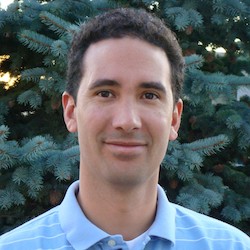
Nicolas Luco
US Geological Survey
Moderator
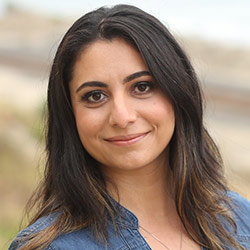
Sanaz Rezaeian
US Geological Survey
Moderator

Charles Kircher
Kircher & Associates
Presenter
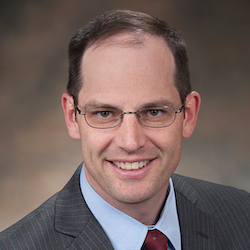
Thomas Murphy
Modjeski & Masters
Presenter

Craig Davis
CA Davis Engineering
Presenter
WEDNESDAY, MARCH 24, 2021
March 24, 2021 10:00 - 11:00am PT
P2: EERI Distinguished Lecture: Operationalizing Lifeline Infrastructure System Resilience To Earthquakes
Lifeline infrastructure system resilience is intimately linked to and supports community resilience through the services they provide. Lifelines are interdependent socio-technical systems vital in the day-to-day operations of our communities, and their basic services essential for community recovery after earthquakes. They include water, wastewater, stormwater control, electric power, gas and liquid fuel, telecommunication, solid waste, and multi-modal transportation systems. This lecture identifies features making lifeline systems resilient. Examples are given on how to operationalize into practice.
Thank you to our session sponsor:

Katerina Ziotopoulou
University of California, Davis
Technical Session Organizer, Moderator

Craig Davis
CA Davis Engineering
Speaker
March 24, 2021 11:30am - 12:30pm PT
S3A: Recent developments in the performance-based evaluation of liquefaction effects on infrastructure
This session will provide a state-of-the-art and -practice update of ongoing research and practice regarding the performance-based assessment of earthquake-induced liquefaction triggering and post-triggering response. Following a brief introduction, three presentations will cover the deformations experienced by liquefiable embankments of a range of relative densities and soil gradations using well-instrumented centrifuge model tests, the effects of sand liquefaction and clay cyclic softening on buried infrastructure through the numerical reanalysis of well-documented case history, and the performance-based design of a tunnel in potentially liquefiable soils. Following the presentations, the presenters will serve on a panel to address participant questions and to comment more broadly on performance-based engineering of geotechnical systems.
Thank you to our session sponsor:
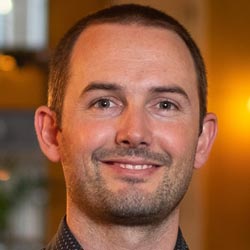
Liam Wotherspoon
University of Auckland
Technical Session Organizer
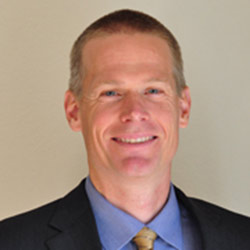
Jason DeJong
University of California Davis
Moderator

Trevor Carey
University of California Davis
"The effect of soil gradation on the system-level performance of sloping liquefiable deposits"

Katerina Ziotopoulou
University of California, Davis
"Liquefaction-induced ground failure and its effects on buried infrastructure: lessons from case histories & experimental data"

Rambod Hadidi
GeoPentech
"Performance-Based Design of A Tunnel In Potentially Liquefiable Ground for Potential Ground Displacement Demands"
March 24, 2021 11:30am - 12:30pm PT
S3B: Resilient Design for Functional Recovery – Our Profession is Currently Taking the Lead
Structural engineers are leading the way in shifting design practice from simply code-conforming to resilient design, with enhanced goals of limiting damage, repair costs, and building closure times. It has long been understood in the engineering community that a life-safety based building code is not sufficient to meet the needs and expectations of the public following a significant seismic event. Engineers are already implementing resilient design for functional recovery, and doing so in a quantitative, standardized, and repeatable way, using the FEMA P-58 risk assessment methodology. This session will examine several examples of buildings that have been designed to be more resilient with enhanced performance objectives (typically limiting repair times and repair costs). The goal of each example is to show how this can be done (and is currently being done) in the structural engineering practice. Each example will specifically highlight the resilient features of the building and how FEMA P-58 was used to quantify and/or improve the building resilience.
Thank you to our session sponsors:

Maha Kenawy
University of Nevada, Reno
Technical Session Organizer, Moderator
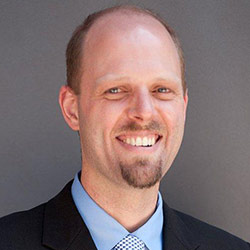
Curt Haselton
Haselton Baker Risk Group, LLC/California State University, Chico
Moderator
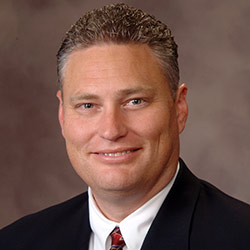
Jon Heintz
Applied Technology Council
"Resilient Design Using FEMA P-58 – Current Practice and Next Steps for Bringing Functional Recovery into Mainstream Design Practice"
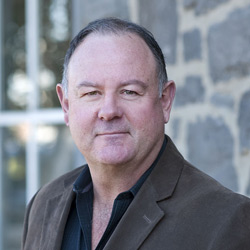
Mark Moore
ZFA Structural Engineers
"Resilient Design with SidePlate technology - The Story of San Francisco’s First USRC-Rated Building"
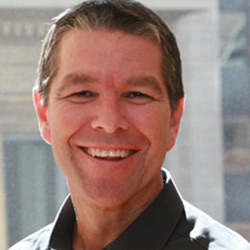
Russell Berkowitz
Forell | Elsesser
"Resilient Design of a 12-story San Francisco RC Shear Wall Outpatient/Office"
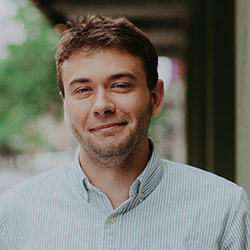
Reid Zimmerman
KPFF Consulting Engineers
"Resilient Design of a 2-story Seismically Base-Isolated Office Building in Salem, OR"
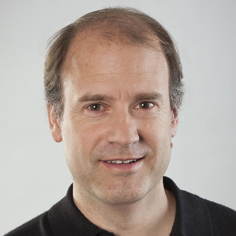
Bret Lizundia
Rutherford + Chekene
"Resilient Design of the Stanford BRBF Biomedical Innovations Building"

Andrew Ewing
KPFF Consulting Engineers - Seattle
"Resilient Design of an 11-Story Reinforced Concrete Wall Office Building in Sacramento, CA"
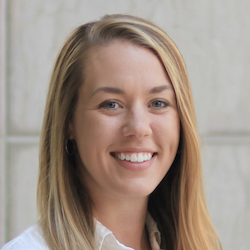
Jessica Westermeyer
KPFF Consulting Engineers - Seattle
"Resilient Design of an 11-Story Reinforced Concrete Wall Office Building in Sacramento, CA"
March 24, 2021 12:30 - 1:00pm PT
Q&A S3A: Interactive Q&A with the speakers of Recent developments in the performance-based evaluation of liquefaction effects on infrastructure
During this interactive session, attendees will have the opportunity to continue the technical session discussion in an informal setting. Those who attend will be able to ask speakers and moderators questions in a live Zoom meeting.
March 24, 2021 12:30 - 1:00pm PT
Q&A S3B: Interactive Q&A with the speakers of Resilient Design for Functional Recovery – Our Profession is Currently Taking the Lead
During this interactive session, attendees will have the opportunity to continue the technical session discussion in an informal setting. Those who attend will be able to ask speakers and moderators questions in a live Zoom meeting.
March 24, 2021 12:30 - 1:00pm PT
i3C: Virtual Reconnaissance During a Pandemic
Post-earthquake reconnaissance during a pandemic presents significant challenges. These challenges open the door and provide the opportunity for virtual reconnaissance to take a leading role to inform agencies on the ground and support researchers in the field. This info session will summarize the Virtual Earthquake Reconnaissance Team (VERT) responses during the COVID-19 pandemic, how the information has been used by various disaster response agencies, and challenges along the way.

Maria Mohammed
Structural Focus
Lead Info Session Organizer

Manny Hakhamaneshi
California Department of Transportation
Presenter
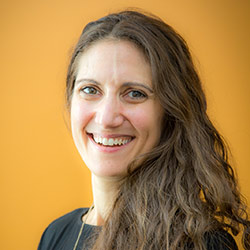
Erica Fischer
Oregon State University
Presenter
March 24, 2021 1:30 - 2:30pm PT
S4A: Sensitivity of liquefaction Hazards to Sea-Level Rise
The U.S. Geological Survey has engaged with San Francisco Bay Area (SFBA) stakeholders about an earthquake scenario (HayWired) and a Coastal Storm Modeling System (CoSMoS). In the SFBA, 1 meter (m) of sea-level rise (SLR) is projected to occur in 40 to 80 years time and cause overland flooding and groundwater table shoaling. Planners and engineers asked: where and how could the liquefaction hazard during an earthquake change with ground water rise?
Thank you to our session sponsors:

Preetish Kakoty
University of British Columbia, Vancouver
Technical Session Organizer
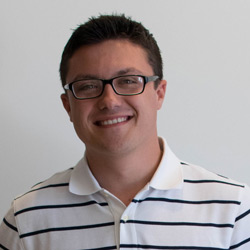
Mike Morano
University of California, San Diego
Technical Session Organizer

Anne Wein
United States Geological Survey
Moderator, “Stakeholder Engagement and Usability Testing of Liquefaction Hazard Change Results”
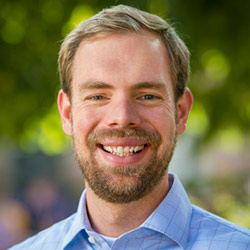
Kevin Befus
University of Arkansas
“Groundwater Modeling of Sea-level Rise”

Alex Grant
United States Geological Survey
“Liquefaction Potential Index Change with Groundwater Rise caused by Sea-level Rise”
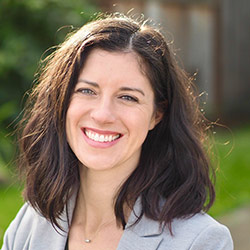
Danielle Mieler
City and County of San Francisco
“User Needs and Experience with the Results”
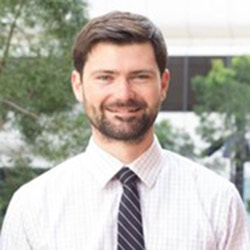
Michael Germeraad
Association of Bay Area Governments
“User Needs and Experience with the Results”
March 24, 2021 1:30 - 2:30pm PT
S4B: Resilient Design for Functional Recovery – Future Enhancements to FEMA P-58 for Assessing Functional Recovery
FEMA first published its FEMA P-58 Methodology for Seismic Performance Assessment of Buildings in 2012, and subsequently updated and enhanced the methodology in 2018. In 2020, FEMA and NIST jointly developed a special publication entitled, Recommended Options for Improving the Built Environment for Post-Earthquake Reoccupancy and Functional Recovery Time, which presented options for improving the built environment in terms of post-event reoccupancy and time to recovery of function. The FEMA P-58 methodology provides a platform for quantitatively measuring reoccupancy and functional recovery time, and a means for designing individual buildings to achieve reoccupancy and functional recovery performance objectives.
Thank you to our session sponsors:

Siamak Sattar
National Institute of Standards and Technology
Technical Session Organizer

Jon Heintz
Applied Technology Council
Moderator

David Mar
Mar Structural Design
"Use of FEMA P-58 for Resilient Design in Practice, and the Need for Enhancements Beyond Repair Time"

Abbie Liel
University of Colorado-Boulder
"Overview and Development of a Method for Assessing Functional Recovery Time"

Curt Haselton
Haselton Baker Risk Group, LLC/California State University, Chico
"Application of Functional Recovery Time in Resilient Design"
March 24, 2021 2:30 - 3:00pm PT
Q&A S4A: Interactive Q&A with the speakers of Sensitivity of liquefaction Hazards to Sea-Level Rise
During this interactive session, attendees will have the opportunity to continue the technical session discussion in an informal setting. Those who attend will be able to ask speakers and moderators questions in a live Zoom meeting.
March 24, 2021 2:30 - 3:00pm PT
Q&A S4B: Interactive Q&A with the speakers of Resilient Design for Functional Recovery – Future Enhancements to FEMA P-58 for Assessing Functional Recovery
During this interactive session, attendees will have the opportunity to continue the technical session discussion in an informal setting. Those who attend will be able to ask speakers and moderators questions in a live Zoom meeting.
March 24, 2021 2:30 - 3:00pm PT
i4C: SESI Classroom Education and Outreach in a Virtual World
EERI’s School Earthquake Safety Initiative (SESI) is hosting a session that focuses on best practices and lessons learned from conducting educational and outreach activities virtually to audiences. For many organizations, the sudden transition to virtual learning has provided a challenge and opportunity to engage with audiences in new ways. This session aims to provide guidance and strategies to help conduct effective virtual outreach to students and coordinate effectively with educators. Though the catalyst for transitioning virtual education was the COVID-19 pandemic, the lessons learned will enable members to reach new audiences through virtual outreach long after the pandemic is over. This session will be divided into three sections. It will start with a brief introduction to SESI, explaining its mission and vision . Secondly, we will present best practices for coordinating and preparing for virtual outreach, as well as tips for effective methods during virtual demonstrations and presentations. Lastly, we will conclude with discussion and Q&A with attendees to share lessons learned and feedback from past experiences.

Shannon Spiers
Buro Happold
Lead Info Session Organizer

Eddie Vega
Holmes Structures
Presenter

Christine Beyzaei
Exponent
Presenter
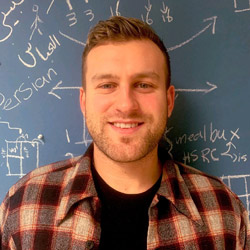
Walker Maddalozzo
Oregon State University
Presenter

Tal Feinstein
UC Berkeley
Presenter
March 24, 2021 2:30 - 3:00pm PT
i4D: EERI Southern California Chapter Welcome Session
Promoting the EERI Southern California Chapter, Q&A with Chapter Officers To encourage membership and involvement in the Chapter by discussing our past and upcoming efforts and events and facilitating a discussion of new ideas for future activities and initiatives.

Maria Mohammed
Structural Focus
Lead Info Session Organizer
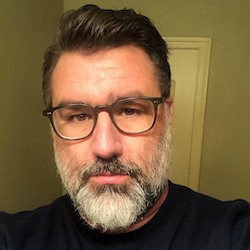
Sam Mengelkoch
Structural Focus
Presenter
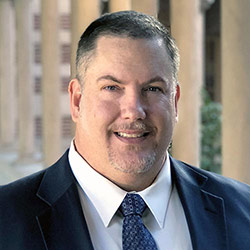
Mark Benthien
USC SCEC
Presenter

Anne Lemnitzer
UC Irvine
Presenter
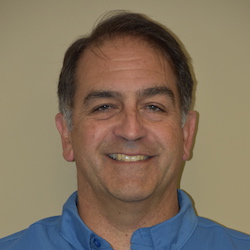
Scott Lindvall
Lettis Consultants International
Presenter
THURSDAY, MARCH 25, 2021
March 25, 2021 10:00 - 11:00am PT
P3: Centering Diversity, Equity, and Inclusion in Our Disaster Resilience Work
Systemic racism, social injustice, and discrimination continue to plague the world in which we live and serve. The disaster science profession has witnessed how marginalized communities are less resilient amid a disaster many times typically because of lack of access to hazard mitigation and because of decades of faulty public policies, to name a few. To advance society and the field of hazard mitigation, there is a need to evaluate the current status of diversity, equity, and inclusion (DEI) within the profession and disaster science. This session will address DEI within the disaster science profession, both in who is employed and the importance of technological solutions deployed to support marginalized communities amid disasters. The Q&A session will include a discussion on how EERI and the profession can continue to support DEI introspectively and communities for which we live and serve.

Monique Head
University of Delaware
Technical Session Organizer

Zahraa Saiyed
Scyma Consulting LLC
Moderator

Sharyl Rabinovici
US Resiliency Council
Moderator

Yumei Wang
Portland State University (Affiliate Faculty)
Panelist

Marccus Hendricks
University of Maryland, College Park
Panelist
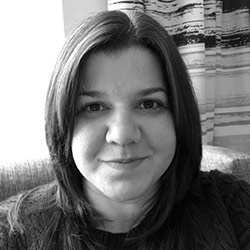
Jenniffer Marie Santos-Hernandez
University of Puerto Rico-Rio Piedras
Panelist

Terri Norton
Bucknell University
Panelist

Erica Fischer
Oregon State University
Panelist
March 25, 2021 11:30am - 12:30pm PT
S5A: Resilience, Risk Reduction, and Municipal Governance
Experts discuss municipal earthquake programs — which policy mechanisms and governance challenges have moved them forward or held them back.
Thank you to our session sponsors:

Michael Germeraad
Association of Bay Area Governments
Technical Session Organizer
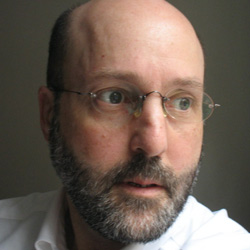
David Bonowitz
David Bonowitz, S.E.
Moderator

Rebecca Laberenne
World Bank
Moderator
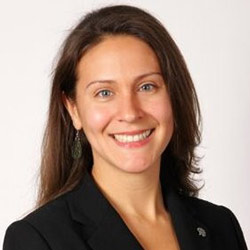
Victoria Salinas
FUSE Corps
Panelist
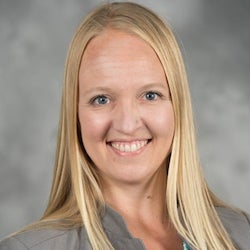
Marissa Aho
City of Houston
Panelist
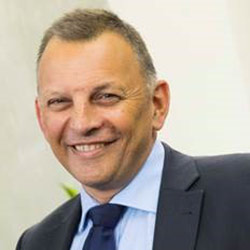
Mike Mendonca
City of Wellington, NZ
Panelist

Rick Cole
Formerly City of Los Angeles
Panelist
March 25, 2021 11:30am - 12:30pm PT
S5B: Post-Earthquake Reconnaissance Experiences of Graduate Students and Young Professionals
Our students and young professionals are the future of our discipline. The opportunity to participate in post-earthquake reconnaissance is an exciting way for emerging earthquake professionals to connect their research project or design work to real world design issues and societal impacts. Furthermore, their participation serves as inspirational training for future missions and a life-long passion for earthquake engineering. In this session, graduate students and young professionals will provide an overview of their post-earthquake reconnaissance experience and findings, while also sharing their motivation in seeking out these opportunities. The presentations will cover a wide variety of earthquakes around the world, with diverse topics in structural and geotechnical engineering, building instrumentation, healthcare infrastructure, and community resilience.
Thank you to our session sponsors:
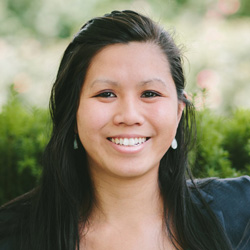
Jessi Thangjitham
North Carolina State University
Technical Session Organizer, Moderator
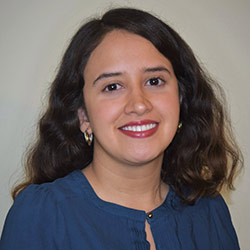
Laura Hernandez-Bassal
University of California, Davis
Moderator, “Lessons learned from post-earthquake reconnaissance in Mexico City after the 2017 Puebla Earthquake”
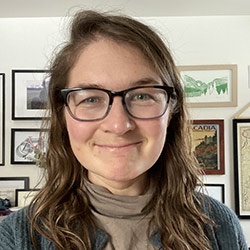
Polly Murray
University of Colorado, Boulder
“Reconnaissance of concrete and CMU homes in Puerto Rico”

Preetish Kakoty
University of British Columbia, Vancouver
“Long-term response and recovery of healthcare infrastructure following the 2010 Maule Earthquake”

Supratik Bose
SEFT Consulting Group
“Learnings from the reconnaissance survey following the 2015 Nepal earthquake”

Patrick Bassal
University of California, Davis
“GEER geotechnical reconnaissance following the 2020 Monte Cristo Range earthquake in Nevada”
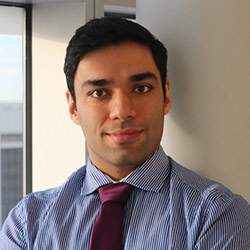
Seyedsina Yousefianmoghadam
State University of New York at Buffalo
“Lessons learned from vibration-based condition assessment of buildings damaged under the 2017 Puebla earthquake”
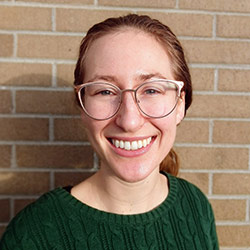
Meg Ackerson
Arup
“Lessons learned from the 2019 EERI travel study program in New Zealand”
March 25, 2021 12:30 - 1:00pm PT
Q&A S5A: Interactive Q&A with the speakers of Resilience, Risk Reduction, and Municipal Governance
During this interactive session, attendees will have the opportunity to continue the technical session discussion in an informal setting. Those who attend will be able to ask speakers and moderators questions in a live Zoom meeting.
March 25, 2021 12:30 - 1:00pm PT
Q&A S5B: Interactive Q&A with the speakers of Post-Earthquake Reconnaissance Experiences of Graduate Students and Young Professionals
During this interactive session, attendees will have the opportunity to continue the technical session discussion in an informal setting. Those who attend will be able to ask speakers and moderators questions in a live Zoom meeting.
March 25, 2021 12:30 - 1:00pm PT
i5C: San Diego Chapter Info Session
Come join the board members of EERI’s San Diego Chapter for an info session about who we are, what we do, and why we do it! The info session will be led by the Chapter’s board members and will give members and non-members a chance to learn who the board/chapter is, what successful projects we have executed in the past (San Diego Earthquake Planning Scenario, annual colloquium, etc.), and what our goals are moving forward. Those in attendance may ask questions, contribute ideas, and learn more about membership for our local chapter.

Maria Mohammed
Structural Focus
Lead Info Session Organizer
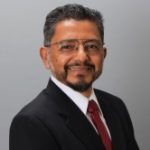
Jorge Meneses
RMA Group
Presenter

Alvaro Celestino
Degenkolb
Presenter

Janna Bonfiglio
Kleinfelder
Presenter

Kristen Chang
Group Delta
Presenter
March 25, 2021 12:30 - 1:00pm PT
i5D: EERI Northern California Chapter: Exciting Plans for 2021..!
The year 2020 has been challenging with the COVID-19 pandemic, but it has also been a great learning experience..! So attend our information session to hear our plans for engaging our members in 2021 to have enjoyable and meaningful experience within the earthquake community. Share your ideas as well.

Shannon Spiers
Buro Happold
Lead Info Session Organizer
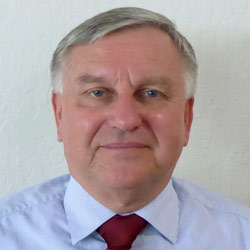
Bruce Maison
EERI-NC Board Member
Moderator

Dana Brechwald
San Francisco Bay Conservation and Development Commission/ Past-President of EERI-NC
Moderator

Volkan Sevilgen
Temblor, Inc./President of EERI-NC
Moderator
March 25, 2021 1:30 - 2:30pm PT
S6A: “Small Data” Approaches in Earthquake Engineering
This session seeks to investigate the opportunities afforded by combining physics-based models with data-based technologies like machine learning to address challenges in earthquake risk assessment and performance-based engineering. Availability of large amounts of data to guide predictive models is causing a renaissance in many aspects of human endeavor including computer science, medicine and engineering. While solely relying on data was hugely successful in traditional machine learning applications such as recommender systems, not leveraging domain expertise and existing theoretical knowledge when dealing with engineering problems is a missed opportunity. Big data often presents obstacles for practical earthquake engineering implementation, given the scarcity of historic and high-quality data in this domain, while many of the physics-based approaches tend to be computationally expensive reducing their widespread practical application. This session focuses on the largely unexplored “small data” approaches within the earthquake engineering domain that help reduce data or computation requirements for machine learning or traditional physics-based models by leveraging a hybrid approach at the intersection of theory- and data-guided frameworks. These approaches are expected to make the implementation of new technologies more manageable and thus encourage widespread practical applications. The presentations in this session will describe several ways in which scientific knowledge can be combined with machine learning methods using case studies of on-going research illustrating multiple research themes in science-guided machine learning. Moreover, the speakers will discuss a reliability-based approach to evaluating the practical benefit (or lack thereof) provided by machine learning models in terms of reduced epistemic uncertainty in seismic risk estimation and will present a “small data” approach for efficient hazard-consistent collapse risk estimation.
Thank you to our session sponsors:
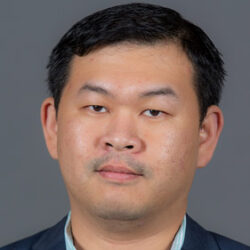
Hartanto Wibowo
Iowa State University
Technical Session Organizer

Dimitrios Lignos
EPFL
Moderator

Nenad Bijelic
EPFL
Moderator, "V-IDA: a tool for efficient hazard-consistent collapse risk assessment"
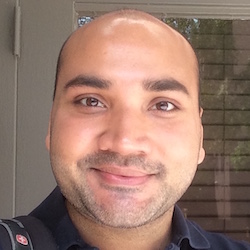
Anuj Karpatne
Virginia Tech
"Science-guided Machine Learning: Advances in An Emerging Paradigm Combining Scientific Knowledge with Machine Learning"

Henry Burton
UCLA
"So your machine learning model improves prediction accuracy by 10%. Why should I care?"
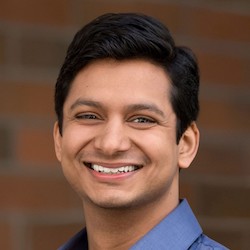
Abhineet Gupta
One Concern
"V-IDA: a tool for efficient hazard-consistent collapse risk assessment"
March 25, 2021 1:30 - 2:30pm PT
S6B: LFE into the Future: Conversation with the new LFE Chairs
The incoming CoChairs for EERI’s flagship reconnaissance program, Learning From Earthquakes, will share their vision and plans for LFE as they start their 4-year term. Following a brief presentation on their vision, they will serve as panelists with a moderator who will incorporate interactive audience questions in a casual interview-style format.

Anandharam Mourougassamy
Magnusson Klemencic Associates
Technical Session Organizer

Ezra Jampole
Exponent
Moderator
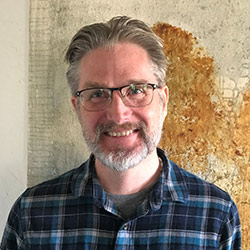
Charles Huyck
ImageCat
Panelist
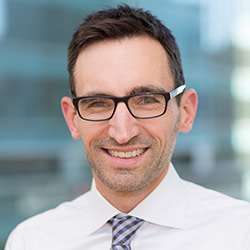
Michael Mieler
Arup
Panelist
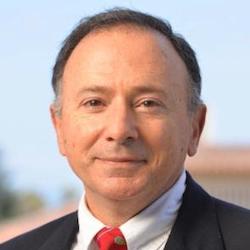
Eduardo Miranda
Stanford University
Panelist

Erica Fischer
Oregon State University
Panelist

Judy Mitrani-Reiser
National Institute of Standards and Technology
Panelist
March 25, 2021 2:30 - 3:00pm PT
Q&A S6A: Interactive Q&A with the speakers of “Small data” approaches in earthquake engineering
During this interactive session, attendees will have the opportunity to continue the technical session discussion in an informal setting. Those who attend will be able to ask speakers and moderators questions in a live Zoom meeting.
March 25, 2021 2:30 - 3:00pm PT
Q&A S6B: Interactive Q&A with the speakers of LFE into the Future: Conversation with the new LFE Chairs
During this interactive session, attendees will have the opportunity to continue the technical session discussion in an informal setting. Those who attend will be able to ask speakers and moderators questions in a live Zoom meeting.
March 25, 2021 2:30 - 3:00pm PT
i6C: Getting Published, with a focus on Earthquake Spectra
Current and past Editors of Earthquake Spectra will provide insights on submitting, revising, and reviewing followed by Q/A. This session is intended for any interested students, authors, and reviewers.

Maria Mohammed
Structural Focus
Info Session Organizer
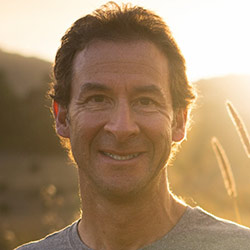
David Wald
U.S. Geological Survey
Moderator
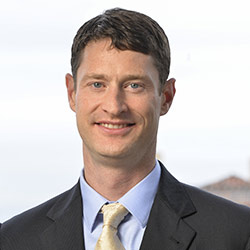
Jack Baker
Stanford University
Presenter
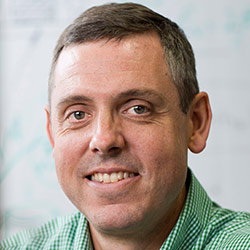
Jonathan Stewart
UCLA
Presenter
March 25, 2021 2:30 - 3:00pm PT
i6D: World Housing Encyclopedia Info Session
The World Housing Encyclopedia is a Committee within EERI that collects and shares resources related to housing construction practices in the seismically active areas of the world. Meet the new Co-Chairs of the WHE for 2021-2022, learn about previous WHE activities, and help us brainstorm new initiatives together!

Shannon Spiers
Buro Happold
Lead Info Session Organizer, Presenter

Reza Imani
ImageCat, Inc.
Moderator
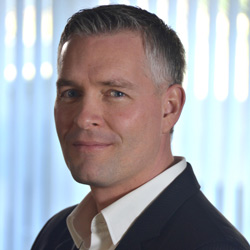
Dominik Lang
Norwegian Geotechnical Institute
Presenter

Marjorie Greene
Presenter
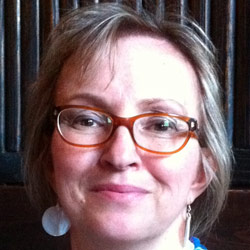
Svetlana Brzev
University of British Columbia
Presenter

Vitor Silva
Global Earthquake Model Foundation
Presenter
WORKSHOPS & POSTERS
March 17, 2021 9:00am - 1:00pm PT
W1: Seismic Evaluation of Older Concrete Buildings for Collapse Potential (FEMA P-2018)
This training about FEMA P-2018, Seismic Evaluation of Older Concrete Buildings for Collapse Potential, walks the participant through an evaluation methodology to identify and prioritize seismically hazardous non-ductile concrete buildings within a building inventory. Application of the methodology enables the identification of buildings that have high collapse risk without the need for extensive testing or nonlinear analysis. The training is primarily geared towards structural engineers. Interested building officials and civil engineers are also encouraged to attend.
Learning Objectives:
- To learn how to apply the FEMA P-2018 methodology to a reinforced concrete building.
- To understand how FEMA P-2018 can be used to identify and prioritize seismically hazardous non-ductile concrete buildings within a building inventory.
Please note, registration is required to attend this workshop.
Thank you to our workshop partner:
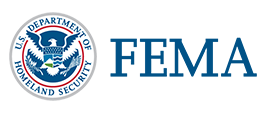
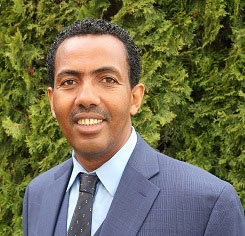
Tadesse Meskele
GRI
Lead Workshop Organizer

Chiara McKenney
Applied Technology Council
Moderator
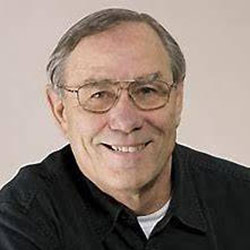
William Holmes
Rutherford + Chekene
Presenter

Abbie Liel
University of Colorado, Boulder
Presenter

Jack P. Moehle
University of California, Berkeley
Presenter

Rami Elhassan
IDS Group
Presenter
March 22, 2021 9:00am - 10:00am PT
W4: EERI Meet the Leaders networking event hosted by the EERI Younger Members Committee
This event aims to connect younger EERI members to leaders in the field through an informal setting. Participants will rotate to talk to different speakers throughout the event based on their preferences.
Click here to view this year’s leaders.
Please note, this is an exclusive event only for EERI student and young professional members.
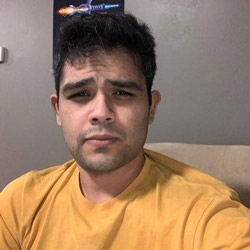
Som Dhulipala
Idaho National Laboratory
Organizer
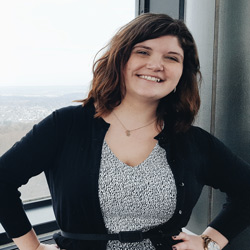
Amanda Sullivan
Buro Happold
Organizer
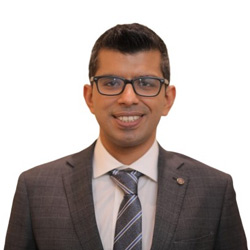
Hasan Tariq
Exponent
Organizer
March 22, 2021 12:00 - 1:00pm PT
Poster Session 1
Come join your fellow researchers and practitioners as you browse EERI’s first virtual poster session! While attendees have the opportunity to explore posters and their accompanying on-demand elevator pitches at any time, join during this hour to interact directly with poster presenters by text or video chat!
Click here to see all the posters that are available to view during this session.
Tuesday March 23, 2021 4:00 - 5:00pm PT
EERI Trivia Quizbowl
An online quiz bowl style trivia night is organized by the Student Leadership Council for the EERI Annual Meeting 2021 attendees. This event is a great way to network with the community, from undergraduate students to senior leaders. The questions are informative, enlightening and fun!
Please join us for the event by RSVPing here: https://forms.gle/8Ga6uJunhxSM4PQa9.
March 24, 2021 4:00 - 5:00pm PT
Poster Session 2
Come join your fellow researchers and practitioners as you browse the evening virtual poster session! While attendees have the opportunity to explore posters and their accompanying on-demand elevator pitches at any time, this hour is your last chance to interact directly with poster presenters by text or video chat.
Click here to see all the posters that are available to view during this session.
Various Times (see below)
W2: Latest USGS Web Tools for ASCE 7 Site-Specific Ground Motion Hazard Analysis (2 Sessions)
This workshop will demonstrate the latest software tools from the U.S. Geological Survey (USGS) for ASCE 7 site-specific ground motion hazard analysis and will provide a n opportunity for feedback from earthquake engineering users. The most recent edition of the ASCE 7 Standard (Minimum Design Loads and Associated Criteria for Buildings and Other Structures) requires site-specific ground motion analysis for many more structures than did the prior edition. For example, site-specific hazard analysis shall be performed for structures on Site Class D and E sites with S1 greater than or equal to 0.2g, with some exceptions (see Section 11.4.8 of ASCE 7-16). The new site-specific requirements have been adopted by the 2019 California Building Code and other local codes.
Learning Objectives: Attendees will come away with a better understanding of how to perform site-specific ground motion analysis for ASCE 7 utilizing the most recent USGS tools.
Please note, registration is required to attend this workshop.
Thank you to our workshop partner:

March 30, 2021 10:00am - 11:30am PT
W2: Session 1: Introduction & Probabilistic Ground Motions
Session 1 will cover:
- Welcome and Overview
- ASCE 7-16 requirements for site-specific ground motion hazard analysis
- Types of “site-specific” analysis
- ASCE 7-16 site-specific procedures for probabilistic ground motions
- Roadmap of options for probabilistic ground motions, including NEHRP-2020 web service
- Demo of USGS web tools for probabilistic ground motions, including UHT and RTGM Calculator
Please note, registration is required to attend this workshop.

Tadesse Meskele
GRI
Lead Workshop Organizer
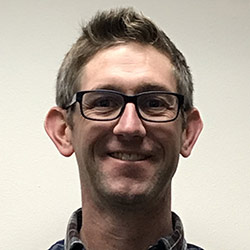
Peter Powers
USGS
Moderator, Speaker

Nico Luco
USGS
Moderator, Speaker

John Hooper
MKA
Speaker
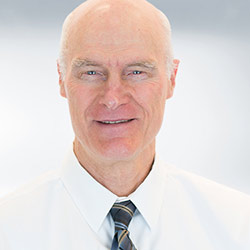
CB Crouse
AECOM
Speaker
March 30, 2021 12:30 - 2:00pm PT
W2: Session 2: Deterministic Ground Motions & Conclusion
Session 2 will cover:
- ASCE 7-16 site-specific procedures for deterministic ground motions
- Roadmap of options for deterministic ground motions, including NEHRP-2020 web service
- Demo of USGS web tools for deterministic ground motions, including BSSC-2014 Scenario Catalog and Response Spectra Tool
- Comparison of probabilistic and deterministic ground motions from site-specific web tools and NEHRP-2020 web service for several sites
- Summary and resource review
Please note, registration is required to attend this workshop.

Tadesse Meskele
GRI
Lead Workshop Organizer

Peter Powers
USGS
Moderator, Speaker

Nico Luco
USGS
Moderator, Speaker

CB Crouse
AECOM
Speaker

Sanaz Rezaeian
USGS
Speaker
Various Dates (see below)
W3: The Natural Hazards Engineering Research Infrastructure (NHERI) & the Extreme Events Research Networks: NSF Resources for Research to Practice (3 Sessions)
This Workshop will be divided into three sessions that focus on a broad overview of NHERI resources and proposal support, simulation expertise and cyberinfrastructure, and reconnaissance efforts through extreme events research and reconnaissance networks. The first session (2 hours) is geared towards early-career researchers and will introduce the NHERI sites, Science Plan (version 2.0), group activities in proposal-building, and a panel of successful NSF grantees. The second session (1 hour) is for the broader natural hazards community and will describe the resources available via the NHERI SimCenter and NHERI DesignSafe. The final session (1 hour) brings together the NHERI RAPID facility and the NSF-supported EERs to discuss resources, how to get involved, and the data collection to publication lifecycle for service-oriented engineers.
Please note, registration is required to attend this workshop.
Thank you to our workshop partners:

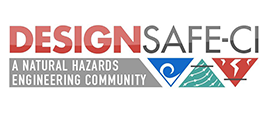
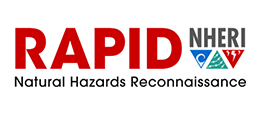
April 1, 2021 8:00 - 10:00am PT
W3: Session 1: NHERI Resources & Proposal Support
Learning Objectives: Identify NHERI sites, points of contact, and resources available for various forms of natural hazards engineering research; Develop an outline for a collaborative, interdisciplinary proposal using NHERI sites and resources which addresses a Key Research Question from the NHERI Science Plan.
Please note, registration is required to attend this workshop.

Tadesse Meskele
GRI
Lead Workshop Organizer
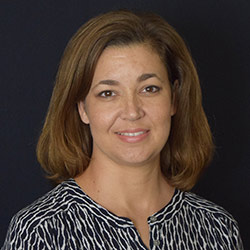
Robin Nelson
UTSA
Moderator
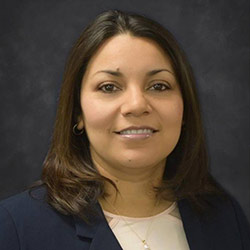
Karina Vielma
UTSA

JoAnn Browning
UTSA
April 2, 2021 8:00 - 9:00am PT
W3: Session 2: Using NHERI Resources for Data Science & Simulation
Learning Objectives: Identify and be able to use NHERI DesignSafe resources for data science- and NHERI SimCenter simulation-based research and practice.
Please note, registration is required to attend this workshop.

Tadesse Meskele
GRI
Lead Workshop Organizer

Robin Nelson
UTSA
Moderator
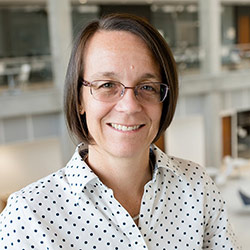
Ellen Rathje
UTexas

Greg Deierlein
Stanford

Matt Schoettler
UC Berkeley
April 2, 2021 9:00 - 10:00am PT
W3: Session 3: Using NHERI & Extreme Events Reconnaissance/Research Networks
Learning Objectives: Identify and be able to use NHERI RAPID resources and EER coordination networks for reconnaissance projects; Understand how to contribute to new reconnaissance needs via virtual and field reconnaissance.
Please note, registration is required to attend this workshop.

Tadesse Meskele
GRI
Lead Workshop Organizer

Robin Nelson
UTSA
Moderator
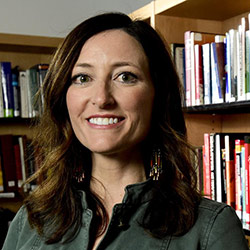
Lori Peek
CU Boulder
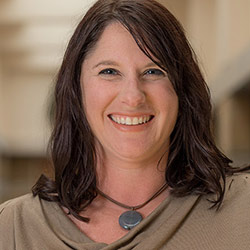
Tracy Kijewski-Correa
University of Notre Dame
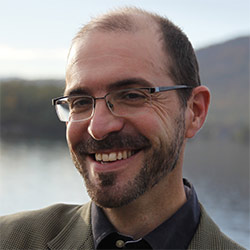
David Mendonça
Renesselaer Polytechnic Institute
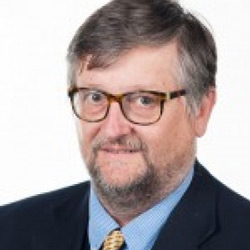
David Frost
Georgia Institute of Technology

Juyeong Choi
Florida A&M University
